Other

“The £5.5m FLOURISH driverless car project has successfully completed the latest phase of its investigations into the requirements of the cyber-physical infrastructure of the future. Pioneered by the University of Bristol, a member of the FLOURISH consortium, the findings …
“A team of international researchers, led by quantum technology experts from the University of Bristol, have shown that a chip-based device can be used to generate quantum-based random numbers at gigabit per second speeds. The tiny device, with a footprint …
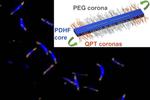
“Scientists from the universities of Bristol and Cambridge have found a way to create polymeric semiconductor nanostructures that absorb light and transport its energy further than previously observed. This could pave the way for more flexible and more efficient solar …
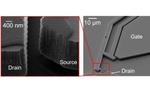
“Researchers from the Universities of Bristol and Southampton, in collaboration with Microsemi, have demonstrated reliable operation of microelectromechanical relays by coating the contacts with nanocrystalline layers of graphite, to enable ultra-low-power electronics for harsh environments. Micro and nanoelectromechanical relays have …
“An international team of quantum scientists and engineers led by the University of Bristol and involving groups from China, Denmark, Spain, Germany and Poland, have realised an advanced large-scale silicon quantum photonic device that can entangle photons to incredible levels …
News Alternative to traditional batteries moves a step closer after exciting progress in supercapacitor technology
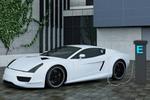
“Lithium-ion batteries could be under threat after the development of polymer materials by the Universities of Bristol and Surrey, along with Superdielectrics Ltd, that could challenge the dominance of these traditional batteries - and they are ready to demonstrate their results …
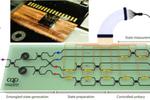
“An international collaboration of quantum physicists from the University of Bristol, Microsoft, Google, Imperial College, Max Planck Institute, and the Sun Yat-sen University have introduced a new algorithm to solve the energy structure of quantum systems on quantum computers. They …

“Acoustic tractor beams use the power of sound to hold particles in mid-air, and unlike magnetic levitation, they can grab most solids, liquids or even small insects and food. For the first time University of Bristol engineers have shown that …
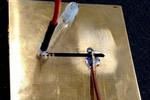
“Multiband tunable antennas are a critical part of many communication and radar systems. New research by engineers at the University of Bristol has shown significant advances in antennas by using optically induced plasmas in silicon to tune both radiation patterns …
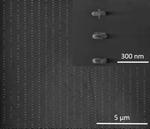
“Researchers from the Universities of Bristol and Bedfordshire, in collaboration with multinational company ABB, have designed and tested a series of plasmonic nanoantenna arrays that could lead to the development of a new generation of ultrasensitive and low-cost fluorescence sensors …
